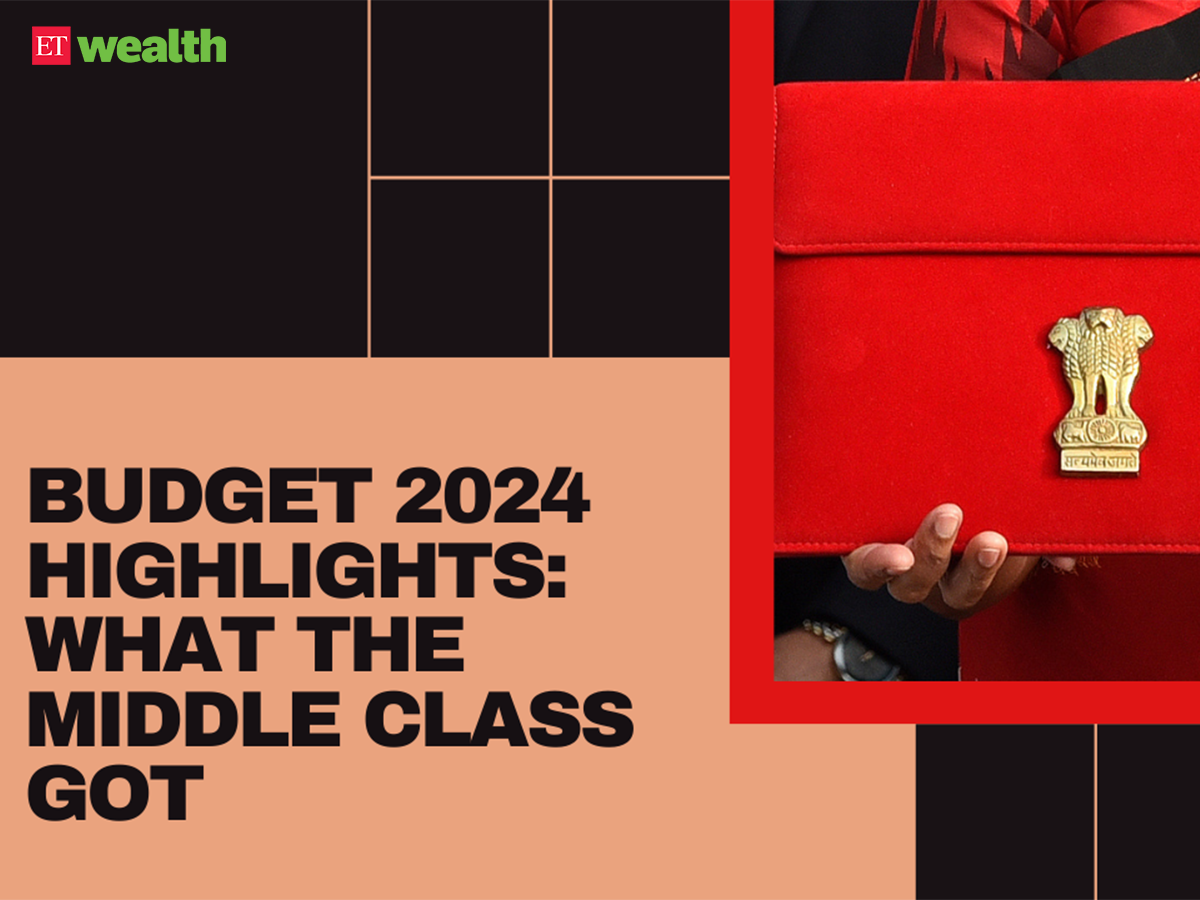Budget 2024 highlights: Key income tax, personal finance announcements
[ad_1]

Even though this is an interim budget, there were great expectations from the FM.
Let us take a look at the most important income tax and personal finance-related announcements made in the interim Budget 2024.
What are the new income tax slabs, rates after interim Budget 2024?Save up to Rs 18000 a year in electricity bills via Pradhan Mantri Suryodaya Yojana rooftop solar power scheme; who is eligible
- Finance Minister Nirmala Sitharam announced a rooftop solar panel scheme for 1 crore houses up which will offer 300 units for free under Pradhan Mantri Suryodaya Yojana.
- Pradhan Mantri Suryodaya Yojana rooftop solar power scheme will help users save up to Rs 18000 a year in electricity bills
- Govt to launch a scheme to help deserving sections of the middle class, as quoted by PM Modi “living in rented houses, slums or chawls or unauthorized colonies”– to buy or build their own houses.
- The Finance Minister has announced withdrawal of all outstanding disputed direct tax demand up to Rs 25,000
- This move will benefit 1 crore tax payers as per the speech.
- Tax slabs and tax structure has been kept unchanged.
Here are the income tax slabs for FY 2023-24 (AY 2024-25) in the new tax regime that will also be applicable for FY 2024-25 as per the interim Budget 2024 proposals:
| Income tax slabs (In Rs) |
Income tax rate (%) |
| Up to 3,00,000 | 0 |
| 3,00,001-6,00,000 | 5% |
| 6,00,001-9,00,000 | 10% |
| 9,00,001-12,00,000 | 15% |
| 12,00,001-15,00,000 | 20% |
| Above 15,00,001 | 30% |
Here are the income tax slabs for FY 2023-24 (AY 2024-25) in the old tax regime for individuals below 60 years of age, senior citizens and super senior citizens.
Current income tax slabs for individuals below 60 years
| Income tax slabs (In Rs) |
Income tax rate (%) |
| Up to 2,50,000 | 0 |
| 2,50,001 – 5,00,000 | 5% |
| 5,00,001-10,00,000 | 20% |
| Above 10,00,001 | 30% |
Current income tax slabs for senior citizens
| Income tax slabs (In Rs) |
Income tax rate (%) |
| Up to 3,00,000 | 0 |
| 3,00,001 – 5,00,000 | 5% |
| 5,00,001-10,00,000 | 20% |
| Above 10,00,001 | 30% |
Current income tax slabs for super senior citizens
| Income tax slabs (In Rs) | Income tax rate (%) |
| Up to 5,00,000 | 0 |
| 5,00,001-10,00,000 | 20% |
| Above 10,00,001 | 30% |
Cess will be levied at 4% on the income tax amount. Surcharges will be levied on incomes above Rs 50 lakh.
- Standard deduction: An individual will continue to be eligible for the same benefit of Rs 50,000 standard deduction from salary or pension income in the upcoming financial year, 2024-25. No change has been announced regarding standard deduction.
- 80C: There has been no change in Section 80C limit in the interim Budget 2024. The maximum limit on investment to claim a tax deduction under Section 80C remains Rs 1.5 lakh as it is now i.e. for current FY 2023-24.
- 87A tax rebate: No change in the amount of tax rebate offered under section 87A has been made. Due to the tax rebate under Section 87A individuals need not pay income tax if their taxable income does not exceed the specified level or limit. Currently, section 87A of the income tax law allows individuals to claim a tax rebate of Rs 12,500 under the old tax regime and Rs 25,000 under the new tax regime.
What is Interim Budget?
An interim budget serves as a framework for managing provisional expenditures over a short duration, usually spanning a few months, until a new government takes office at the central level. The conclusion of the fiscal year on March 31 corresponds with the typical transition period to a new government in late May or early June. The interim budget is strategically crafted to meet the financial requirements and tackle revenue considerations of the recently established government during this interim period. Following the inauguration of the new government, a comprehensive budget for the remaining portion of the fiscal year is typically presented in July.
What is Vote on Account?
Vote on Account is passed through the interim budget, enabling the government to address expenses in the period leading up to elections. This procedure is conducted as a customary practice, devoid of any major deliberations. Essentially, it serves as an upfront allocation necessary for the government’s operational continuity until the formal approval of demands for grants and the subsequent passage of the Finance Bill and Appropriation Bill.
 Loan, Personal Loan, Home Loan, Business Loan,Loans in India Loan in India, Personal Loan, Home Loan, Business Loan, Loans in India,Loan Finance,Loan in India, Get Instant Personal Loan,Home Loan, Business Loans in India
Loan, Personal Loan, Home Loan, Business Loan,Loans in India Loan in India, Personal Loan, Home Loan, Business Loan, Loans in India,Loan Finance,Loan in India, Get Instant Personal Loan,Home Loan, Business Loans in India